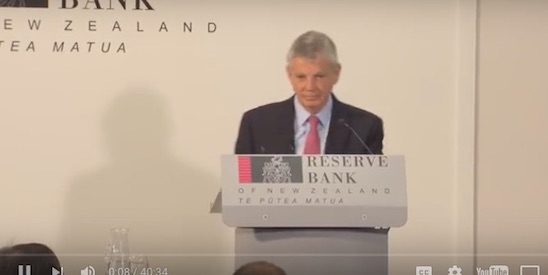Accounting & Finance
How to get Married without Going Broke
It’s interesting how wedding fashions go in cycles. In my day, it was quite sufficient to put on your kaftan and roman sandals, arrange a few flowers in your hair and exchange shell rings on a beautiful sandy beach.

It’s wedding season – a time of celebration, honeymoons and brides and grooms who dream of living happily ever after.
It’s interesting how wedding fashions go in cycles. In my day, it was quite sufficient to put on your kaftan and roman sandals, arrange a few flowers in your hair and exchange shell rings on a beautiful sandy beach.
More recently, we’ve had a long spell where it wasn’t seen to be necessary to get married at all.
Nowadays, it seems the lavish wedding is back in vogue and young couples find themselves with the challenge of putting on a wedding that matches or outshines the expectations of their peers but without going broke. If you are in this category, there are some important things you need to remember.
Getting married is all about you and your partner making a public commitment to each other in a way that you will each remember and reflect back on for the rest of your lives. It’s something that you create for your benefit – not anyone else’s. Your guests are there to share your experience, but it’s your day, not theirs.
Creating a memorable and beautiful wedding doesn’t have to be expensive.
Getting married is one of the first milestones in your life together. You have a whole future to plan that includes developing your careers, perhaps some travel, buying a house and having a family. Spend too much on the first milestone and there’s not much left for the others.
As a couple you will need to be able to talk about and agree on financial matters for the rest of your lives.
Disagreements about money are a leading cause of relationship difficulties, and planning a wedding will be a good test of how well you can work together to set priorities for your money.
Your attitudes towards money are determined by many different factors including your childhood experiences, your feelings about risk and security, and the degree to which you are willing to make short term sacrifices for long term gain.
Because you come from different backgrounds, it is very likely that you and your partner will have different attitudes towards money. That’s not to say that one of you is right and the other is wrong, but it does mean that you will have to try and understand each other’s perspective and reach compromises over areas where you differ.
The sooner you start talking together about the budget for your wedding the better.
It’s also important to agree who is paying for what. All parties who are making a financial contribution to the wedding should be part of the process of agreeing a budget.
It’s easy for costs to spiral out of control, so once you have set a budget, stick to it.
With an amount agreed, look at how you are going to finance it. Set aside whatever funds you have in a high interest bank account (see www.raboplus.co.nz) and add to that account by automatic payment each pay day.
It’s never a good idea to go into debt to pay for a wedding and doing so will create a big hurdle for you to get over before you can achieve your next big goal.
If you have to go into debt, keep your interest cost as low as possible, for example by borrowing small amounts from family members.
One of the biggest factors in the cost of a wedding is the number of guests, so keep it small.
There are many wedding websites with other useful tips on how to have a memorable wedding without spending a fortune (for example www.nzbride.co.nz).
Take a tip from the Chinese: for centuries, they have given money (‘ang pau’ or ‘red envelopes’) rather than gifts at weddings. The amount given is usually enough to cover the cost of the attendees.
One of the secrets to a happy life is to have lots of love and little or no debt.
If you use your money wisely, you won’t need to choose between having a happy day and living happily ever after.
Accounting & Finance
Low Interest Rates Winners and Losers

Lower mortgage interest rates is a big deal for most homeowners and buyers.
Existing homeowners can hunt around for a better deal with the same or another lender and in the process save hundreds, if not thousands of dollars on interest payments. Even if a borrower is locked into a fixed rate deal on a fixed term, it often pays to break it and reap the rewards of paying a lot less interest.
For first time home buyers, lower interest rates can be the difference between renting and owning a home. Existing homeowners trading up or down, see lower interest rates as a great time to sell and buy too, Therefore there is always a frenzy of activity in the mortgages sector when there is movement in interest rates and there will be winners and and there will be losers.
Winners and Losers
Lower interest rates sends a signal to vendors with homes to sell, that there are more buyers in the market. This can get unsold properties sold which is a win win for vendor and buyer.
More buyers in the market, however can also push the sales price up, as vendors aim to get the best price and there can be only one buyer, the one who is willing and able to pay the most.
In this situation it’s more of a win for the vendor. The eventual purchaser is likely to have paid more than they were comfortable with and thus borrowed more to get the property. Plus there were many buyers locked out by the higher price.
First Home Buyer Tip
The tip for first home buyers is to always be ready to take action as soon as the timing is right.
For first home buyers, it’s always a good time keep a financial advisor or broker up to speed on your personal financial position. This way when the timing is right, like a downward move in interest rates, you can just ask the question:
“What can I afford to borrow, now the interest rates are lower?”
There is no such thing as one size fits all when it comes to borrowing money. Your position will determine how high risk you are to a lender.
A trusted advisor in the know, can act fast on your behalf when lending conditions favour you. Lenders who see you a good ‘investment’ will be keen to move quickly too, to secure your business and thus beat their competition, i.e. other lenders.
Recent news of an OCR rate drop by the RBNZ, spread like wildfire around the country and the early worm is sure to get the best deals.
Homeowners with advisors already up to speed on their current position, will be busy acting on their behalf, to find the best deal saving their clients hundreds if not thousands in interest repayments over the term of their loan.
Property price increases have cooled in Auckland, increasing by just 1.7 percent compared to the previous year. Listings too have been lower, however that’s all about to change. More buyers, trigger more listings and with more buying power, higher property prices.
Timing is everything, so whatever your circumstance, talk to your mortgage advisor and act on the deal that’s right for you.
Accounting & Finance
Property Listings Drought Adds Fuel To Fire
A property listings drought is adding further fuel to our over-heated property market. Property prices are increasing everywhere except Taranaki according to Trade Me Sales Price Index and that’s got the RBNZ considering further action to curb demand.

A property listings drought is adding further fuel to our over-heated property market. Property prices are increasing everywhere except Taranaki according to Trade Me Sales Price Index and that’s got the RBNZ considering further action to curb demand.
The RBNZ’s LVR restriction on Auckland property investors has done little to dampen their appetite and many have also moved their focus to other areas where property prices have been on the increase since October 2015.
The listings drought suggests most home owners are electing to improve their properties using the equity in their homes over moving house. Some Aucklanders have chosen to leave the city for change of lifestyle and Tauranga has been one of the main benefactors as well as the region of Hawkes Bay.
Curbing demand is how the RBNZ want to deal with the property market and they’re considering a variety of measures. Bernard Hickey in a news item on NZHerald believes we’ll know more on the RBNZ’s next move in the second half of 2016. Bernard mentions two dates in particular: 19 August is the deadline for Auckland Council to accept all or some or reject all the Unitary Plan. The Government is hinting at wading in if the Unitary Plan does not meet their goals of an Auckland growing up and out to meet new housing supply targets.
The other date to watch out for is 30 November. On this day the RBNZ presents it’s Financial Stability Report. One of the measures under consideration by the RBNZ is the fixing of the income to loan ratio.
From the news item on NZHerald
“The Reserve Bank helpfully included a chart in this week’s report that showed around 35 per cent of owner-occupiers and 60 per cent of investors had borrowed more than 5 times their income.”
New rules are coming and if what’s happened to date is anything to go by the RBNZ is not shy at taking action so keep these dates in your diary. No doubt investors are now very aware of their income to lending ratio and will be taken the necessary steps to survive the next round of RBNZ restrictions.
This blog article was written for PropertyBlogs by Mobilize Mail.
Accounting & Finance
How Low Can Mortgage Rates Go?
News of lower wholesale interest rates suggests we may be in for another round of super low home loan interest rates as early as next week. A news item on interest.co.nz provides examples of the correlation between swap rates and the mortgage rates with one example being SBS Bank’s one year rate as it was back in November 2015.

News of lower wholesale interest rates suggests we may be in for another round of super low home loan interest rates as early as next week. A news item on interest.co.nz provides examples of the correlation between swap rates and the mortgage rates with one example being SBS Bank’s one year rate as it was back in November 2015. At the time their rate was big news as it was the lowest at 3.99% while the one year swap rate was at 2.72%.
Fast forward to February 2016 and SBS Bank’s one year rate is at 4.35% while the one year swap rate is currently lower than it was back in November, its currently 2.58%. A downwards move is predicted and SBS Bank could move back to where it was in November 2015 at 3.99% or go even lower.
It really just takes one lender to make a move and the other lenders are sure to follow. Borrowers in the know are regularly speaking to their mortgage broker to keep up to speed on the best deals and terms on offer.
So how low can mortgage rates go? Possibly lower than they were in 2015.
This blog article was written for PropertyBlogs by Mobilize Mail.
-

 Management5 years ago
Management5 years agoHome Insulation Requirements
-

 Investment5 years ago
Investment5 years agoAnother date NZ property investors are dreading
-

 Accounting & Finance5 years ago
Accounting & Finance5 years agoLow Interest Rates Winners and Losers
-

 Build5 years ago
Build5 years agoHow to Choose and Purchase a Suitable Property to Subdivide
-

 Management6 years ago
Management6 years agoAttracting More Business Travellers To Your Auckland Airbnb Property
-

 Investment6 years ago
Investment6 years agoWould You Be a Landlord in 2018?
-

 Tenants6 years ago
Tenants6 years agoCoworking Countdown – 4 Things to Prepare Before You Move In
-

 Renovations6 years ago
Renovations6 years agoFive easy steps to boost the appeal of your home





